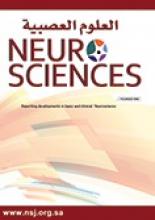NOVEMBER 3, 2021 - In the study that included 339 children aged four to 14 years, parents were asked to complete questionnaires about their children’s sleep, while the children completed a test of word reading efficiency.
Children whose parents reported increased sleep-disordered breathing, daytime sleepiness, and a short time for children to fall asleep (which is generally associated with increased tiredness) had poorer performance on reading tasks for both words and nonwords.
“Being a good reader is a strong predictor of academic success and improved life outcomes, so we recommend screening children with sleep problems for reading difficulties, and children with reading difficulties for sleep problems,” said corresponding author Anna Joyce, PhD, MSc, of Regent’s University London. “Screening and treating sleep and literacy difficulties at a young age could help to improve life outcomes for all children.”
Full Citation: “Sleep-disordered breathing and daytime sleepiness predict children’s reading ability.” Anna Joyce CPsychol, Helen L. Breadmore. Br J Educ Psychol; Published Online: 02 November 2021 (DOI: 10.1111/bjep.12465).
URL Upon Publication: https://onlinelibrary.wiley.com/doi/10.1111/bjep.12465
Copyright © 2021 The Cochrane Collaboration. Published by John Wiley & Sons, Ltd., reproduced with permission.
- Copyright: © Neurosciences
Neurosciences is an Open Access journal and articles published are distributed under the terms of the Creative Commons Attribution-NonCommercial License (CC BY-NC). Readers may copy, distribute, and display the work for non-commercial purposes with the proper citation of the original work.






